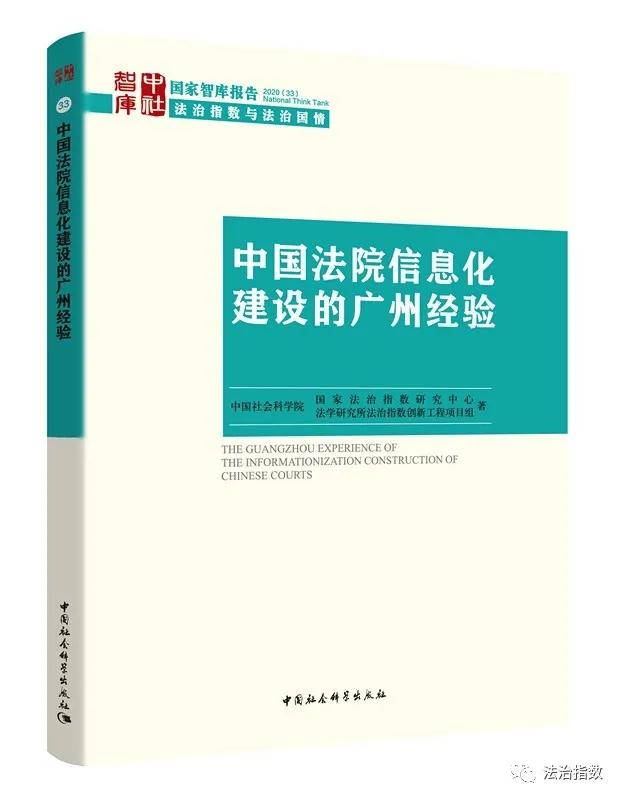
CASS Center for National Index of the Rule of Law and the Innovation Project Team on Rule of Law Indices of CASS Law Institute, National Think Tank Report: the Guangzhou Experience of the Informatization Construction of Chinese Court, Beijing: China Social Sciences Press, October 2020.
Court informatization, as an important part of national informatization program and the key to upholding social justice and meeting the judicial demand of the people, is not only the transformation of trial method and trial management mode, but, more importantly, also a systematic project of improving the trial system and trial capacity. In recent years, courts in Guangzhou City have advanced the court informatization in accordance with the strategic arrangement for advancing the rule of law in an all-round way and the idea of “big data, big pattern and big service” and achieved marked results in promoting judicial openness and administration of justice for the people and improving the quality of trial and standardization of judicial administration. To analyze and summarize the practices and experiences of Guangzhou court, the CASS Center for National Index of the Rule of Law and the Innovation Project Team on Rule of Law Indices, CASS Law Institute carried out a third-party assessment of the construction of smart court in Guangzhou. The result of the assessment, the Guangzhou Experience of the Informatization Construction of Chinese Court, was recently published by China Social Sciences Press as part of the book series the National Think Tank Reports. The book, characterized by novelty, comprehensiveness, objectiveness, and neutrality, aims at objectively demonstrating the latest progresses in the court informatization made by courts in Guangzhou and in the whole country, further exploring the direction of future development of smart court, expanding the influence of the informatization of Chinese courts, creating brand effect of court informatization, and providing the world with a Chinese sample and Guangzhou experience of judicial informatization.



